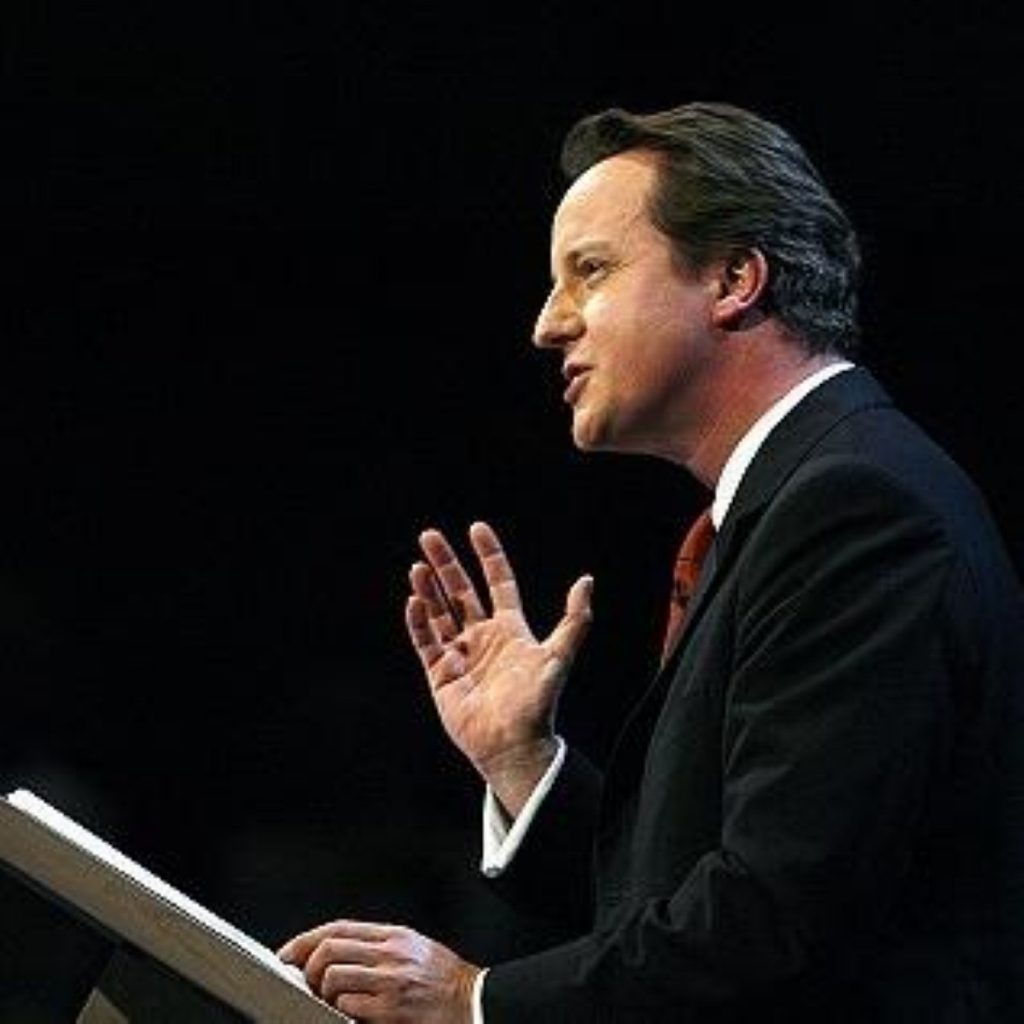Cameron: Blair’s foreign policy has failed
David Cameron has challenged the government to drop the “failing” policy of interventionism, warning Britain must be realistic in its foreign policy missions.
Speaking in Germany, the Conservative leader said Tony Blair’s doctrine of “liberal interventionism” had been founded on the right impulses but had failed to match idealism with realism.
Arguing liberal interventionism has failed, Mr Cameron set out the argument for a more conservative approach, urging leaders to be sceptical about the ability of states to create utopias.
While governments should help other states to become strong and self-confident, they must accept they cannot “just get in there and sort it all out”.


The former prime minister set out his belief in humanitarian intervention in a keynote speech in 1999. It paved the way for military intervention in Kosovo as well as Iraq.
Addressing the Berlin Security Conference, Mr Cameron said foreign policy must balance liberal and conservative impulses.
He explained: “Liberal – because I believe civil rights, democracy, pluralism and the rule of law are the source of progress and a key component of lasting security.
“But conservative too: because I recognize the complexities of human nature, am sceptical of grand utopian schemes to remake the world, and understand that you have to be hard-headed and practical in the pursuit of your values.”
He urged world leaders not to make the mistake of equating institutional security with democracy; while democracy promotes security, he insisted institutions like the rule of law and a strong civil society must come first.
While arguing the benefits of NATO, Mr Cameron said nations must be inward looking when pursuing international security.
To ensure national security, states need institutional, cultural, economic and physical security, he argued.
The UK must take action on a number of fronts which have been “dangerously neglected” in recent years, the Tory leader claimed.
Mr Cameron said the British government must do more to promote national cohesion and clampdown on the people and institutions that undermine it.
He also called for a border police force, greater support for the armed forces and a national security approach that combines domestic and foreign security.
Setting out his foreign policy agenda at this year’s Labour conference, the foreign secretary David Miliband also signalled a break from Tony Blair’s liberal interventionism.
Mr Miliband announced the “second wave” of New Labour foreign policy, promising to approach the world with “humility but also pride.”

